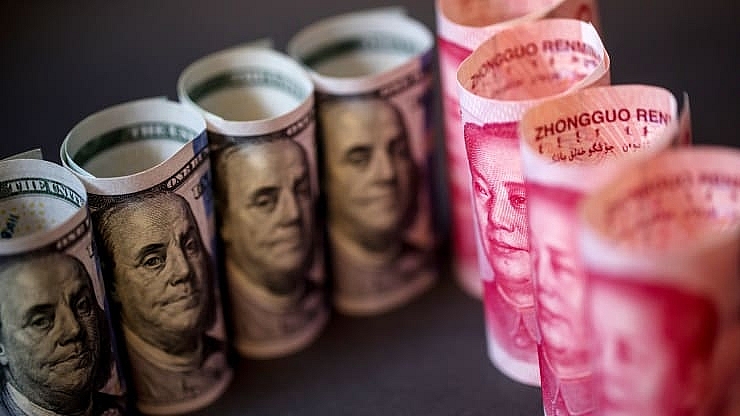Chinese yuan weakened to 11-year low in response to new tariffs
The Chinese currency has lost 3.8 per cent so far in August, putting it on track for its worst month since it moved to a managed floating exchange rate in 2005. The offshore renminbi, which is more freely traded, weakened as much as 0.7 per cent to Rmb7.1858 to the dollar, a new record low, Financial Times reported.
 |
| The offshore yuan weakened to an 11-year low. Photo: Getty Images |
The move is expected to help the second-largest economy in the world ameliorate some of the effects of the escalating trade war with the US because a weaker currency makes China’s exports cheaper, adding to the country’s trade advantage. It might also offset a part of the tariffs that the US levied on Chinese goods in recent months, said Nguyen Hong Diep, director of Saigon-Hanoi Securities Company (SHS).
The reaction came after Beijing announced on Friday that it would slap new tariffs of 5-10 per cent on $75 billion of US imports from September. In response, President Trump upped tariffs on $250 billion of Chinese imports from 25 to 30 per cent, and increased levies on $300 billion of Chinese goods.
While declines in the value of the renminbi make Chinese goods cheaper for the rest of the world, SHS’s Nguyen Hoang Diep noted that any slowdown in Vietnamese exports to China could result in a corresponding rise in Vietnamese exports to other markets, as VIR previously reported. In short, Vietnamese firms should seize opportunities to find alternative markets.
What the stars mean:
★ Poor ★ ★ Promising ★★★ Good ★★★★ Very good ★★★★★ Exceptional
Related Contents
Latest News
More News
- Banking sector targets double-digit growth (February 23, 2026 | 09:00)
- Private capital funds as cornerstone of IFC plans (February 20, 2026 | 14:38)
- Priorities for building credibility and momentum within Vietnamese IFCs (February 20, 2026 | 14:29)
- How Hong Kong can bridge critical financial centre gaps (February 20, 2026 | 14:22)
- All global experiences useful for Vietnam’s international financial hub (February 20, 2026 | 14:16)
- Raised ties reaffirm strategic trust (February 20, 2026 | 14:06)
- Sustained growth can translate into income gains (February 19, 2026 | 18:55)
- The vision to maintain a stable monetary policy (February 19, 2026 | 08:50)
- Banking sector faces data governance hurdles in AI transition (February 19, 2026 | 08:00)
- AI leading to shift in banking roles (February 18, 2026 | 19:54)

 Tag:
Tag:


























 Mobile Version
Mobile Version